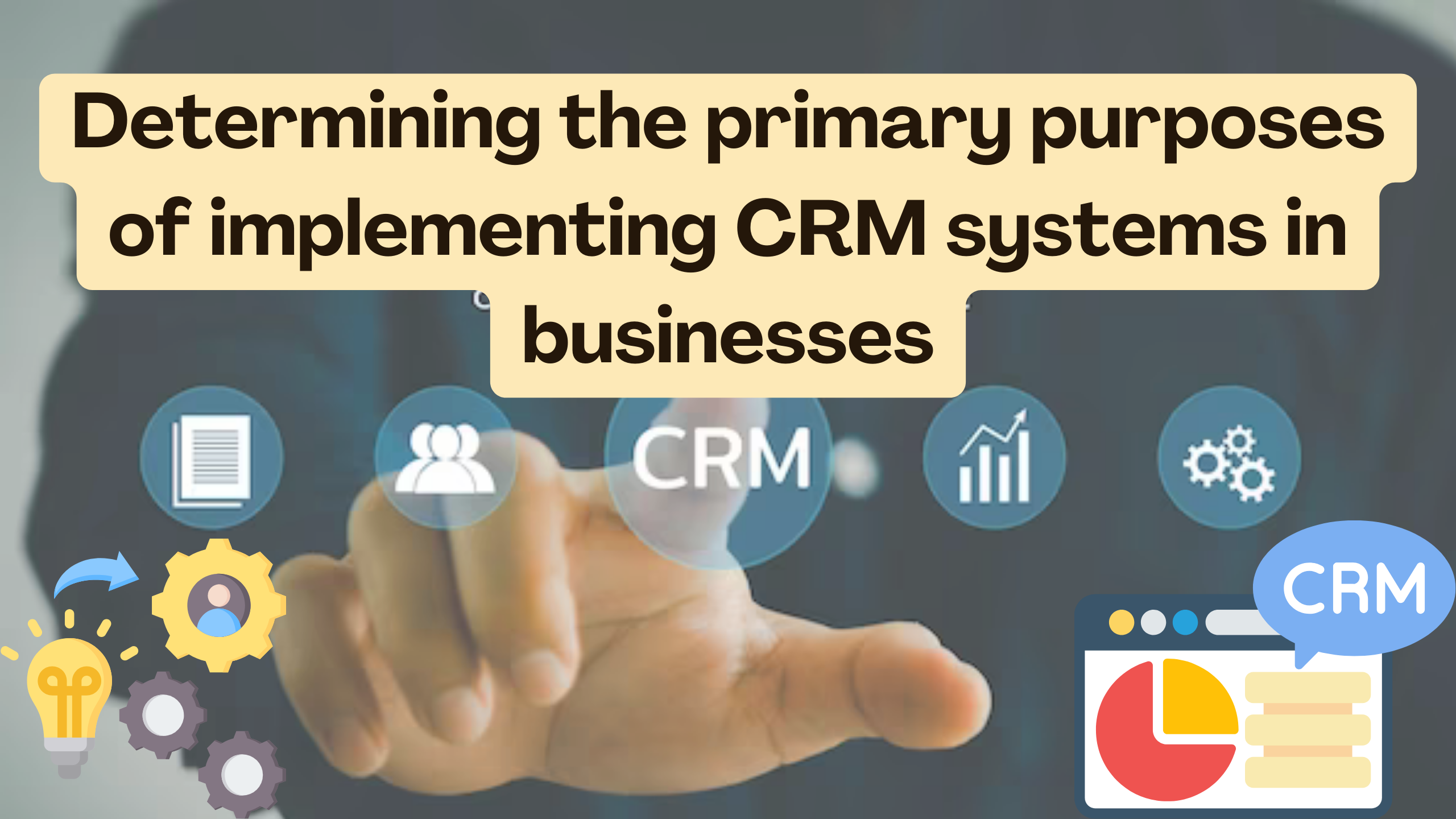Determining the primary purposes of implementing CRM systems in businesses
- Proposal Software Customer Relationship Management


Determining the Primary Purposes of Implementing CRM Systems in Businesses
Customer Relationship Management (CRM) systems have become indispensable tools for businesses aiming to enhance customer interactions and streamline operations. In this article, we will delve into the key purposes of implementing CRM systems, exploring their multifaceted benefits. Additionally, we’ll introduce relevant Software as a Service (SaaS) products to help businesses leverage the full potential of CRM.
Unveiling the Core Functions of CRM Systems
1. Customer Data Management
At the heart of CRM lies the efficient management of customer data. HubSpot offers a comprehensive CRM solution, allowing businesses to organize, track, and nurture leads seamlessly. By centralizing customer information, businesses can gain actionable insights, fostering personalized interactions.
2. Sales Process Optimization
CRM systems, like Pipedrive, are tailored to optimize sales processes. Pipedrive facilitates deal tracking, automates repetitive tasks, and provides a visual interface for managing sales pipelines. This ensures that sales teams can focus on building relationships and closing deals.
3. Customer Engagement and Communication
Zendesk is not just a customer support platform but also integrates CRM capabilities. It enables businesses to engage with customers across various channels, providing a seamless experience. By unifying support and sales data, Zendesk enhances communication and ensures a consistent customer journey.
4. Marketing Campaign Effectiveness
Integrating CRM with marketing efforts is essential. Mailchimp serves as a powerful tool for email marketing with CRM integration. This synergy allows businesses to create targeted campaigns, track customer responses, and refine marketing strategies based on real-time data.
5. Data Analytics for Informed Decision-Making
Leveraging data analytics is crucial for business success. Tableau integrates with CRM systems, providing intuitive data visualization. This empowers businesses to make informed decisions, identify trends, and adapt strategies to evolving customer needs.
Conclusion
In conclusion, CRM systems serve as the backbone of modern business operations, catering to diverse needs. From managing customer data to optimizing sales processes and enhancing marketing strategies, the implementation of CRM is instrumental in achieving business success.
As businesses embark on their CRM journey, they can explore exclusive deals and insights on Subscribed.FYI.
Enhance your CRM journey with Subscribed.FYI
Subscribed.FYI is your go-to platform for navigating the expansive world of SaaS tools. Whether you’re a freelancer, part of a small team, or managing a larger enterprise, Subscribed.FYI simplifies the decision-making process, offering insights, comparisons, and exclusive deals on essential SaaS products.
Relevant Links:








